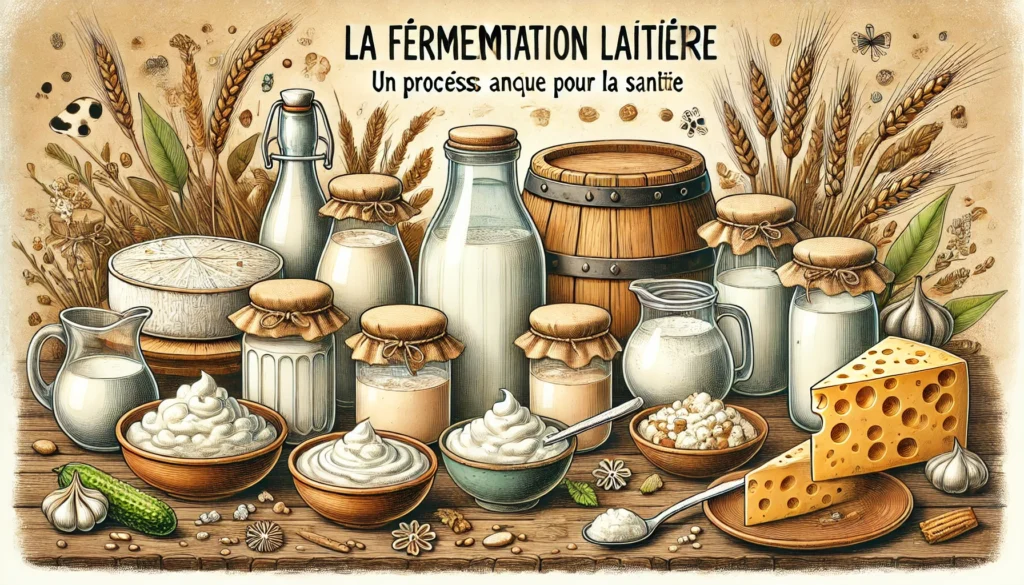Fermentation is an ancient process that dates back thousands of years and has evolved to become a valuable asset for health today. It transforms basic foods into true nutritional treasures, rich in probiotics and essential nutrients. But why is fermentation so beneficial, and how can we incorporate it into our modern diet to reap all its benefits?
What is Fermentation?
Fermentation is a natural process in which microorganisms, such as bacteria and yeasts, convert carbohydrates (sugars) into acids, gases, or alcohols. This process not only helps preserve food for longer but also enriches its composition with nutrients and beneficial compounds for the body. Common foods such as yogurt, kimchi, sourdough bread, and kombucha are the result of this biological transformation.
An Ancient Tradition Serving Modern Health
Ancient civilizations used fermentation not only for food preservation but also for its health benefits. For instance, in many Asian cultures, miso and natto were used to strengthen immunity and improve digestion. In other parts of the world, fermented dairy products like kefir were valued for their ability to improve gut flora.
Today, science validates these ancient practices by highlighting the numerous health benefits of fermentation, particularly thanks to the probiotics it produces.
Health Benefits of Fermentation:
Improvement of Gut Health: Fermented foods are rich in probiotics, beneficial microorganisms that strengthen our gut microbiota. A balanced gut flora not only enhances digestion but also plays a crucial role in the immune system.
Better Nutrient Absorption: Fermentation pre-digests certain nutrients, making them easier for our body to absorb. For example, the fermentation of soy into natto increases the bioavailability of vitamin K2, which is essential for bone and heart health.
Strengthening the Immune System: By balancing the gut microbiota, fermented foods boost our immune system. Probiotics help fight pathogens and reduce inflammation.
Reduction of Lactose Intolerance: Fermented dairy products like yogurt or kefir contain less lactose than milk. People with lactose intolerance can better digest these products due to the enzymes produced during fermentation.
Antioxidant Effect: Some fermented foods, like kombucha tea, contain antioxidant compounds that protect cells from damage caused by free radicals.
How to Integrate Fermented Foods into Your Diet?
Adding fermented foods to your diet is simple and beneficial. Here are some ideas to get started:
- For Breakfast: Try natural yogurt or kefir, which can be paired with fresh fruit and nuts.
- For Lunch: Add a serving of sauerkraut or kimchi as a side dish to complement your main meals.
- As a Drink: Kombucha is a delicious alternative to sugary and carbonated beverages, with digestive benefits.
- As a Snack: Fermented vegetables like carrots or radishes make for a healthy, nutrient-rich snack.
In conclusion, fermentation is much more than just a preservation process; it is a true alchemical practice that benefits our health. By incorporating fermented foods into our daily diet, we can support our digestion, strengthen our immune system, and enjoy better nutrient absorption. In a modern world where processed and sugary foods are ubiquitous, returning to these ancient practices offers a path toward a more balanced and beneficial diet.

